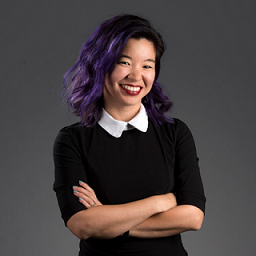Projects Editor of Special Initiatives and Partnerships | The Washington Post

Marian Chia-Ming Liu has dedicated her career to the communities she represents — Asian, immigrant and female — and has covered everything from K-pop to anti-Asian attacks, interviewing everyone from Britney to BTS. For the past two decades, she’s worked across multimedia, finding what resonates locally, nationally and globally.
Currently, Liu is The Washington Post’s Projects Editor of Special Initiatives and Partnerships, focused on reaching new readers through new sections and innovative technology. She’s managed several projects and section launches, including the new Style section covering news from the front lines of culture; Well+Being, wellness stories on bodies of all shapes, sizes and colors; plus the Pulizer-winning series “The Attack: Before, During and After.”
Previously, she worked at CNN in Hong Kong as a senior multiplatform editor, running the sites and social for the business, entertainment, media, technology and travel sections. She’s also launched a hyperlocal entertainment site for the South Florida Sun Sentinel. Liu launched her own career in music, as a critic for the San Jose Mercury News and The Seattle Times, profiling many Asian artists for American audiences for the first time, as well as introducing nationwide audiences to Bay Area hip hop in Source Magazine.
She’s devoted to guiding the next generation of journalists and has taught and guest lectured across several universities, including Florida International University, Northwestern and her alma mater, University of California, Berkeley. She also directed VOICES, the Asian American Journalists Association’s college and graduate student multimedia program, and now serves on their National board as their Vice President of Civic Engagement, in charge of creating a new style guide, which will help direct how the Asian American and Pacific Islander community is covered. This way we will no longer be reactive, but can be proactive in how the community is treated.
